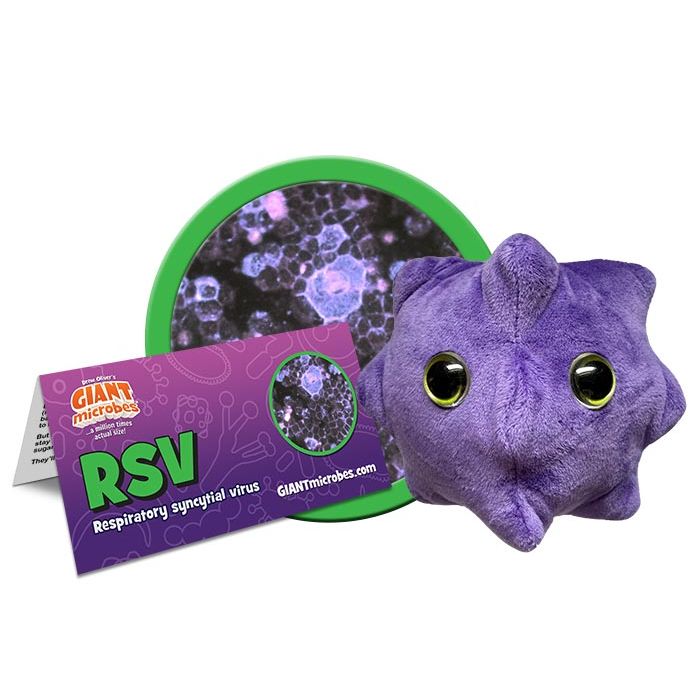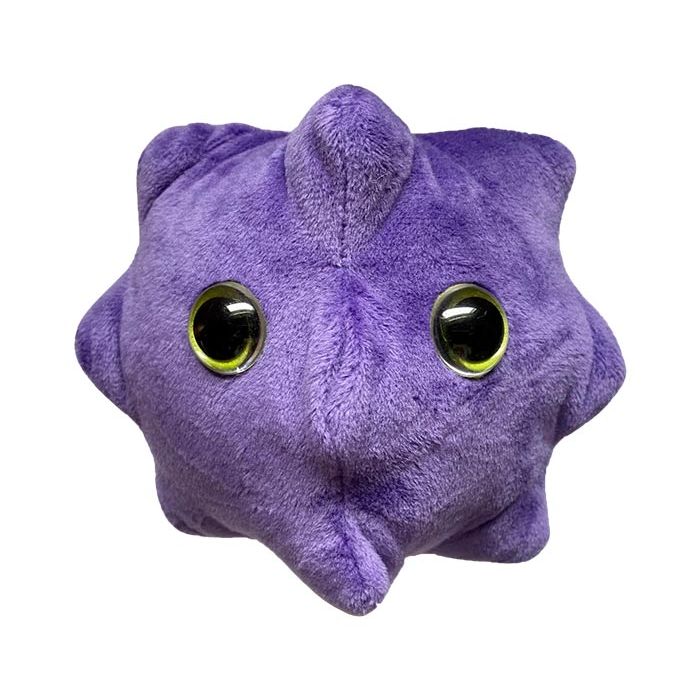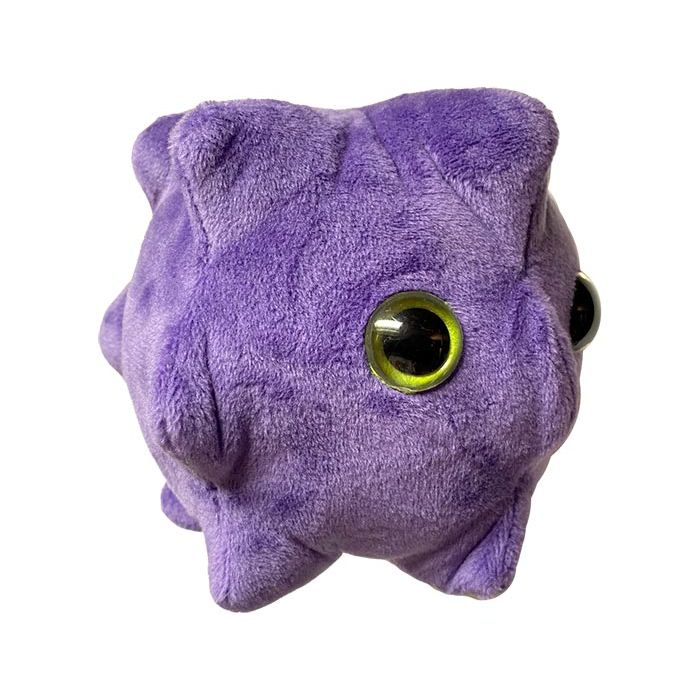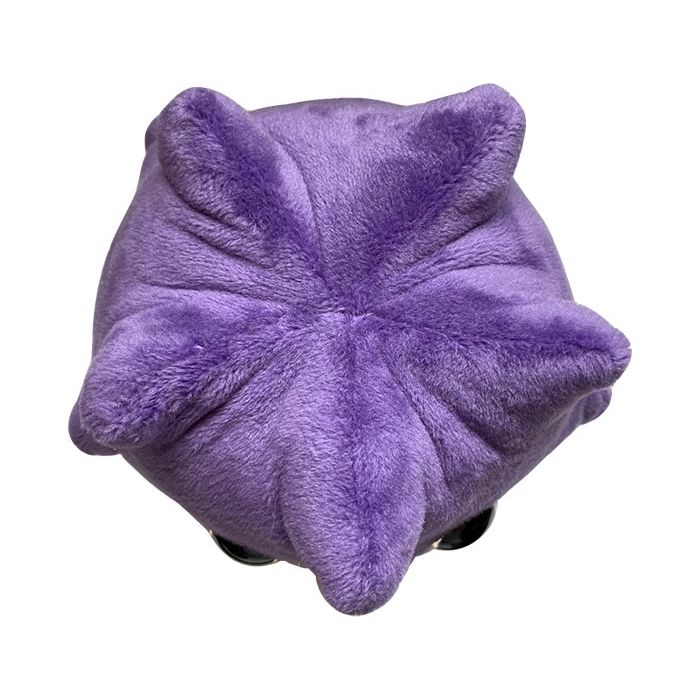RSV (Respiratory syncytial virus)
This cuddly version of RSV, or Respiratory Syncytial Virus, is a fun and educational way to learn about a virus that affects millions each year (especially infants, young children, and older adults.) Modeled after the real virus structure, this plush makes a unique teaching tool or get-well gift.
RSV is a common cause of lower respiratory infections like bronchiolitis and pneumonia. Though most cases are mild, it can be serious for those with weakened immune systems or underlying conditions. Our soft RSV plush helps raise awareness while bringing a lighthearted touch to science, medicine and recovery.
Whether you're a healthcare professional, educator, or just love science toys, this plush makes a great addition to your collection. Use it to explain infection prevention, immune response, or simply to spark curiosity! It's a thoughtful gift for anyone who's battled RSV or wants to better understand how this virus spreads and affects the lungs.
Product Details
Additional Information
| Sizes | Giantmicrobes are based on actual microbes, cells, organisms and other critters, only 1,000,000 times actual size! Gigantic (GG) 16-24" XL (XL) 10-15" Original (PD) 5-8" Keychain (KC) 2-4" with clip |
|---|---|
| Materials | Plush from all new materials. Stuffed with polyester fiber fill. Surface washable: sponge with water & soap, air dry. |
| Packaging | Each plush microbe includes a printed card with fun, educational and fascinating facts about the actual microbe or cell. |
| Safety | Every product meets or exceeds U.S. and European standards for safety. For ages 3 and up. |
All about RSV (Respiratory syncytial virus)
FACTS: Meet RSV, or respiratory syncytial virus. In fact, you have probably already been exposed to RSV before your second birthday. RSV usually causes mild cold-like illness but can be severe, or even fatal, in older adults and young children. It is one of the most common childhood illnesses and a main cause of bronchiolitis and pneumonia in babies. RSV is also a gift that keeps on giving since we do not naturally mount long-lasting immunity against it and you can get infected multiple times during your life. The season for RSV starts in the fall. During the winter of 2022, RSV contributed to the tripledemic also involving flu and Covid cases that swamped children’s hospitals.
RSV symptoms are similar to the common cold or even a mild case of the flu or Covid, and include a cough, runny nose, sneezing and fever. Infants under six months old may become irritable and have decreased appetite and activity. More severe RSV infections may cause difficulty breathing, high fever and bluish lips or nails. Seek medical attention when babies, older adults and those who are immunocompromised have these symptoms. Because adults already have a lot of antibodies against the virus from previous exposures, their illness tends to be much milder. RSV can be contagious for up to 8 days. Coughs, sneezes and kisses are a few ways that RSV gets around. Unlike Covid, RSV can also spread when people touch contaminated surfaces. Wash your hands to minimize the spread of RSV, along with many other contagious microbes.
There is currently no cure for RSV, but a vaccine has been developed and approved for use. There are antigen and PCR tests for RSV, but they are typically reserved for young children or older adults. There is also an immunizing agent, palivizumab, that can help prevent severe illness in children, but this does not treat those already infected or prevent infection. Fortunately, RSV infections tend to go away on their own in a couple weeks, most people recover well, and repeat infections are generally less severe than the initial infection.









